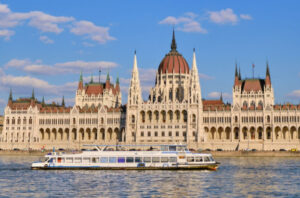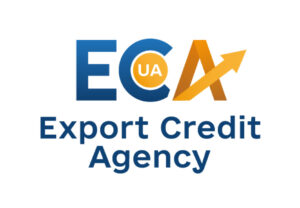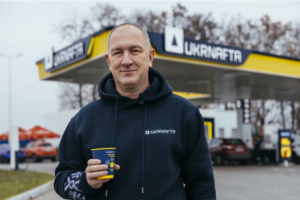
The dairy industry, which is one of the key sectors of Ukraine’s agricultural sector, has retained its production base and is gradually recovering despite the full-scale war, Deputy Minister of Economy, Environment, and Agriculture Taras Vysotsky said at the XVII All-Ukrainian Conference “Dairy Business-2025” in Kyiv on Thursday.
The deputy minister noted that in January-October 2025, Ukraine produced almost 5.9 million tons of milk.
“An important trend is the growing role of agricultural enterprises: they already account for 45% of production, and their production volumes have increased by 7.6%, despite the overall reduction in livestock numbers. Quality is also improving: more than 55% of milk sent for processing meets the European ‘extra’ standard,” he wrote on Facebook.
Vysotsky emphasized that the industry is also actively working in foreign markets. In the first 10 months of 2025, exports of dairy products grew by almost 9%. Sixty-four Ukrainian companies have permission to export dairy products to the EU, 40 of which are milk processing plants.
“Despite the challenges, we are maintaining the stability of current indicators and forming a resource for further growth – this is our realistic and strategic focus. The next step is investment, modernization, and a clear move towards integration with the European market,” the deputy minister concluded.

According to Serbian Economist, Budapest, Hungary, ranked first in Radical Storage’s list of the world’s dirtiest cities, compiled based on an analysis of tourist reviews of the cleanliness of popular attractions in 100 major tourist destinations.
According to the study, 37.9% of reviews mentioning cleanliness in Budapest were negative, which was the worst result among all cities surveyed. Rome (35.7% negative reviews), Las Vegas (31.6%), Florence (29.6%), and Paris (28.2%) followed.
The top 20 cities perceived as the dirtiest by tourists also included Milan, Verona, Frankfurt, Brussels, Cairo, Heraklion, New York, Barcelona, Johor Bahru, Seville, San Francisco, Miami, Hyderabad, London, and Osaka. In all these cities, the share of negative reviews about cleanliness ranges from 15.6% to 26.8%.
The authors of the study note that the most criticism for cleanliness is received by mass tourist centers with historic centers and high loads on urban infrastructure. In the case of Budapest, one possible reason is that the waste management system has not been able to keep up with the growth in tourist traffic, which, according to Etias, increased by 8.3% in Hungary in September 2025 and by 12% in the capital itself compared to the same month in 2024.
Radical Storage emphasizes that the rating reflects not objective sanitary indicators, but rather the subjective perception of cleanliness by tourists, as recorded in English-language Google reviews of key attractions in the 100 leading cities in the world according to the Euromonitor index.

Ukrainian bakery chain Lviv Croissants has launched its second location in Washington State, US, the company announced on Instagram.
The new location is in Westfield Southcenter Mall, one of the largest shopping centers in the region and a key traffic hub. The space was prepared for opening for about a year.
“A lot of teamwork went into this opening. We prepared the space for almost a year — carefully, responsibly, and without rushing. And now we can say: it was worth it. We brought to Tacoma what we love most: Lviv hospitality and flavors that are easy to fall in love with,” the company said, adding that the Ukrainian atmosphere of Lviv Croissants is now even closer to Seattle.
The assortment includes traditional croissants with various fillings, as well as beverages to make snacks for an active day convenient and delicious.
As reported, the chain entered the Norwegian market in November.
According to the company’s website, the brand entered the European market in September 2022. Currently, there are 178 establishments throughout Ukraine, 11 in Poland, and one each in Slovakia and the Czech Republic.
In April 2025, the Lviv Croissants chain opened its first outlet in South Korea. Korean franchisees invested about $250,000 in the bakery, and the total investment in the opening was about $500,000.

The Export Credit Agency (ECA) has received a certificate of compliance with the international standard ISO 37001:2016 — the Anti-Bribery Management System standard, according to the ECA website.
In addition, it is noted that ISO 37001:2016 is a globally recognized standard that defines the requirements for the development and operation of systemic mechanisms for preventing, detecting, and responding to bribery risks. It applies to organizations of any form of ownership and scale and covers both internal processes and interactions with contractors, partners, and intermediaries.
ISO 37001:2016 certification confirms that EKA has implemented and is effectively operating an anti-bribery management system that meets international requirements and has been independently assessed by an external certification body. The audit covered not only the existence of policies and procedures, but also their implementation, internal control, accountability, and response mechanisms.
“For international partners, financial institutions, and businesses, ISO 37001:2016 certification confirms that ECA’s activities are based on the principles of integrity, transparency, and good governance, and that its internal processes are designed in line with the best global practices in anti-corruption compliance,” the statement said.
The Export Credit Agency of Ukraine (ECA) is a state institution that supports non-commodity exports by insuring the risks of enterprises and banks. The agency insures foreign economic contracts, export credits, bank guarantees, and investment loans against military risks.

UKRNAFTA has completed a charity project to support the Boriviter Military School. Together with its customers, the company raised UAH 4,000,000, which will be used to strengthen military training programs.
As part of the project, UAH 5 from each coffee sold at UKRNAFTA gas stations was allocated to the purchase of drones, communication equipment, simulators, and other necessary equipment for training defenders.
For over three years, Boriviter has been training military personnel in 12 areas, including UAV control, military communications and electronic warfare, NRK, topography, and military management. During this time, instructors have trained over 34,000 soldiers who are now working to defend the country.
To promote this initiative, Ukraine’s largest gas station chain, UKRNAFTA, released a special series of 25 themed paper cups featuring images of cultural heritage sites from all regions of Ukraine and Crimea. Customers actively participated in collecting and even collecting these cups, which reminded them of their native places and pre-war good mornings.
“We are grateful to everyone who joined in. This project has very practical and quick results: more trained drone operators, more lives saved,” said Acting Chairman of the Board Yuriy Tkachuk.
JSC Ukrnafta is Ukraine’s largest oil production company and operates the largest national network of gas stations, UKRNAFTA. In 2024, the company entered into asset management with Glusco. In 2025, it completed an agreement with Shell Overseas Investments BV to purchase the Shell network in Ukraine. In total, it operates 663 gas stations.
The company is implementing a comprehensive program to restore operations and update the format of its network of gas stations. Since February 2023, it has been issuing its own fuel vouchers and NAFTAKarta cards, which are sold to legal entities and individuals through Ukrnafta-Postach LLC.
The largest shareholder of Ukrnafta is Naftogaz of Ukraine with a 50%+1 share.
In November 2022, the Supreme Commander-in-Chief of the Armed Forces of Ukraine decided to transfer to the state the corporate rights of the company that belonged to private owners, which is now managed by the Ministry of Defense.

France’s Schneider Electric plans to buy back €2.5-3.5 billion worth of its own shares by the end of 2030.
The company expects to increase the profitability of its operations amid the development of the artificial intelligence market and growing demand for electrification solutions.
According to a press release from Schneider Electric, the company aims to increase its adjusted EBITA margin by 250 basis points in 2026-2030. Its previous target was to increase this figure by 50 basis points in 2024-2027.
Schneider Electric will seek to “capitalize on opportunities in the areas of electrification, automation, and digitalization,” said its CEO Olivier Blume, whose words are quoted in a press release published ahead of an investor event.
The company forecasts average annual revenue growth of 7-10% through 2030. In addition, it plans to sell assets with proceeds of €1 billion to €1.5 billion during this period.
Schneider Electric is a manufacturer of distribution and protection equipment, automation devices for the energy sector, and other equipment.
Its solutions play an important role in ensuring the operation of data centers.
Schneider Electric shares added 2.5% in price on Thursday trading in Paris. Since the beginning of this year, their value has fallen by less than 1%.